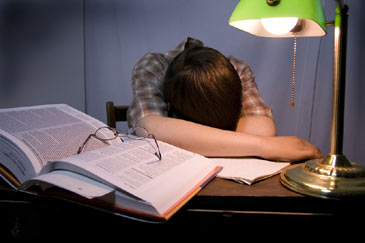Every purchase made online is encrypted with a high level of security you’ve come to expect. Your private information is never shared nor sold, so you can buy with confidence. You can also visit our store if you are in the St. Louis area.

Did you know it takes a lab rat only 5 days to die from sleep deprivation? Few of us realize the importance of sleep when it comes to our health. And even fewer college students are aware of the impact one night of heavy drinking can have on the body when it comes to sleep.
Table of Contents
What Every College Student Should Know About Alcohol and Sleep
Doctors and sleep experts will tell you that it takes a minimum of three days for the average person’s body to recover from a night of heavy drinking. This is because one night of partying can affect REM sleep, the essential stage of sleep everyone needs to wake up feeling physically and mentally refreshed. Take what can happen on a college homecoming weekend for example.
As a college student you look forward to partying on Friday night. By midnight you have had enough drinks to become intoxicated. When you finally get back to your dorm room and sleep for 10 hours your brain has never fully entered the REM stage of sleep. This is why you wake up feeling tired and sluggish on Saturday morning with hardly enough energy to make it to the game.
Nobody likes hangovers…
and by Saturday afternoon you vow not to go out that night, let alone have a drink. You think Saturday night will be the night you’ll “catch up” on sleep. Unfortunately, your sleep deprived brain has other ideas. Once you’re asleep your sleep-deprived brain enters what’s called REM REBOUND where it stays too long in the REM stage. Consequently, you wake up on Sunday morning feeling tired and sluggish again. Still dragging from all the drinking you did Friday night, you must face doing your homework today with the remaining time that’s left on Sunday. By Sunday night, you’re bushed. But the good news is your brain is finally returning to its normal sleep cycle and by Monday morning you wake up feeling rested and refreshed. And it’s a good thing you’re feeling better because you didn’t get as much homework done as you had expected so now you’re worried and stressed you won’t make certain deadlines. Not a good way to start a new week.
Good thing you have parents who care about you enough to buy you a quality mattress for a comfortable night’s sleep. A recent study (The Science of Sleep, 60 Minutes, 2008) showed that sleeping 4 hours per night for 6 nights in a row caused persons to be in a pre-diabetic state. What’s the bottom line? The less people sleep the more they tend to gain weight. It all has to do with hormones. When you don’t get enough sleep, you end up feeling hungrier without feeling satisfied when you eat, causing you to eat more and ultimately gain weight. This may help to explain the “freshman fifteen,” or the fifteen pounds many college freshmen gain from drinking too much, causing sleep deprivation which causes the body to want to eat more.
Mom was right when she said you need your beauty rest and to eat right.
A good night’s sleep prevents overeating. So if you find you can’t get more than 6 hours of sleep, be sure to include dairy products (warm milk and honey), calcium fortified orange juice, almond, figs, peas, beans and dark leafy green vegetables, whole grain products, nuts and seeds, peanut butter, bananas, avocados, chocolate and beans. Look for foods that will actually help you to sleep. Foods rich in vitamin B like whole grains, wheat germ, walnuts, peanuts, bananas and sunflower seeds have a sedative effect. And foods high in tryptophan like turkey, dates, figs, milk, tuna and whole grains also help you sleep.
